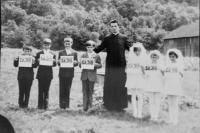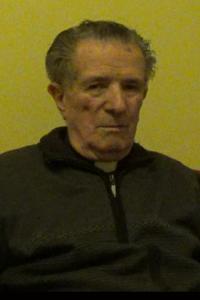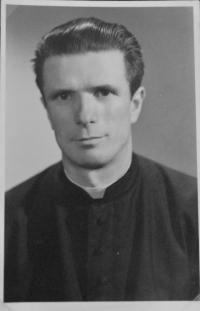If you want to track me, do it at least without me knowing about it

Stáhnout obrázek
Michal Roško was born on November 22, 1928 in the village of Záhor. When he finished the elementary school, he continued studying at middle school in Sobrance and later in Uzhhorod. After the war he enrolled at the State Pedagogical Academy in Michalovce and during his study he lived with Salesians. Later he joined the Faculty of Theology at the monastery in Obořiště near Dobříš. However, as the year 1950 came, all the monasteries were liquidated and people from this monastery were taken to the camp in Králíky. Michal worked here in agriculture, picked snails and labored on the field. Subsequently he had to enlist in the Auxiliary Technical Battalions, where he served 3 years and 3 months. At first he was in Komárno, then in Podbořany and in Sliač. Moreover, in the beginning of 1960s, Michal happened to end up in prison for several months because of his secret study to become a priest. He had to wait long 18 years to be ordained a priest. In the meantime he worked like electrician, maintenance man, volleyball coach as well as director of an amateur theatre. He was also employed in ironworks or in the State Scientific Library as a warehouseman. He has a great merit on building or restoring the churches in Snina, Dedačov and Humenné, which could have been finished despite the former socialist, i.e. anti-religious ruling era.



